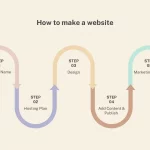Let’s face it, the world is in a bit of a pickle when it comes to energy. We’re running out of fossil fuels, they pollute the environment, and they’re getting more and more expensive. Renewable energies offer a solution to all of these problems.
Renewable energy is energy that is collected from renewable resources, which are naturally replenished on a human timescale, such as sunlight, wind, rain, tides, waves, and geothermal heat. But what are the benefits of using renewable energies?
Table of Contents
Benefits of Renewable Energies

Reduces pollution
Renewable energies tend to have far fewer environmental impacts than traditional fossil fuels. For example, hydroelectric dams – a type of renewable energy – can provide power without producing any pollution.
Renewables are emissions-free, meaning they don’t produce carbon dioxide or other pollutants that contribute to climate change. In fact, many types of renewable energies can help clean up the environment by replacing dirty and polluting technologies (like coal-fired power plants).
Saves money in the long run
Though initial investment costs for some renewables can be high, they often save money in the long run.
This is because once a renewable energy system is built, the fuel costs are very low or non-existent. For example, solar panels need only sunlight to generate power – which is free! – while wind turbines need only wind.
Also, because renewables don’t produce pollutants like carbon dioxide, they can save money by avoiding environmental damage caused by these pollutants. They tend to have fewer maintenance costs than traditional energy sources too.
Creates jobs
The renewable energy industry is one of the fastest growing industries in the United States and around the world.
And according to recent studies, jobs in renewables are also some of the most stable jobs around – meaning that they’re not as likely to be outsourced or automated as some other sectors. This is especially important in regions that are not as privileged as others.
Take, for example, someone from a rural area who has very few job prospects. But with the growth of the renewable energy sector, this person now has the opportunity to get a well-paying and stable job – which can have a major impact on their life.
And as the sector continues to grow, it will only create more of these opportunities. So, not only is the renewable energy sector good for the environment, but it’s also good for people and the economy.
Endless sources
Unlike fossil fuels – which will one day run out – there’s no limit to how much renewable energy we can generate. As long as there’s sun and wind, we can keep generating solar and wind power.
And even if we ran out of sun and wind, biomass, geothermal, and hydropower are ready to step in and fill our energy needs!
In other words, we’ll never have to worry about running out of renewable energy.
Reduce countries’ economic dependence
Fossil fuels are becoming increasingly expensive to extract as reserves dwindle. In today’s economy, oil-producing countries have an enormous amount of power. They can manipulate prices and toy with the global market, often at the expense of other nations.
This leaves many countries beholden to these oil-rich nations, struggling to meet their energy needs. However, renewable energies offer a way out of this dependence. Solar, wind, and hydroelectric power provide a constant and reliable source of energy that is not subject to the whims of the global market.
Local residents can also be trained to maintain and operate these renewable energy systems, furthering a country’s independence.
As more and more countries make the switch to renewables, they will be less and less dependent on oil-producing nations. This reduced dependence will lead to a stronger economy and a more stable world market.
Save lands
One of the main benefits of renewable energy is that it can help save the land. For example, mountain top removal for coal mining destroys large areas of natural habitat. Solar panels can be installed on rooftops, taking up minimal space.
Similarly, wind turbines can be placed on previously developed land, such as old farmlands or abandoned factory sites. By using renewable energies, we can reuse existing land instead of continuing to destroy more natural habitats.
Renewable energies can also help bring new life to rural areas. For example, community-based solar farms can provide an additional income stream for farmers. Small-scale hydroelectric dams can provide power to remote villages that are not connected to the grid.
By investing in renewable energies, we can help to preserve our natural environment and revitalize rural communities.
Conclusion
So there you have it! Those are just some of the benefits of using renewable energies. Now it’s up to us to make the switch from polluting fossil fuels to clean renewables!
So why aren’t we doing more to switch to renewables? One reason is that they can be more expensive to install than traditional fossil fuel systems. But as prices come down and technology improves, we can expect renewables to become even more cost-effective.
What can you do to help promote renewable energy? You can start by installing solar panels or using a green energy provider. You can also talk to your friends and family about the benefits of renewables and how they can help fight climate change.

